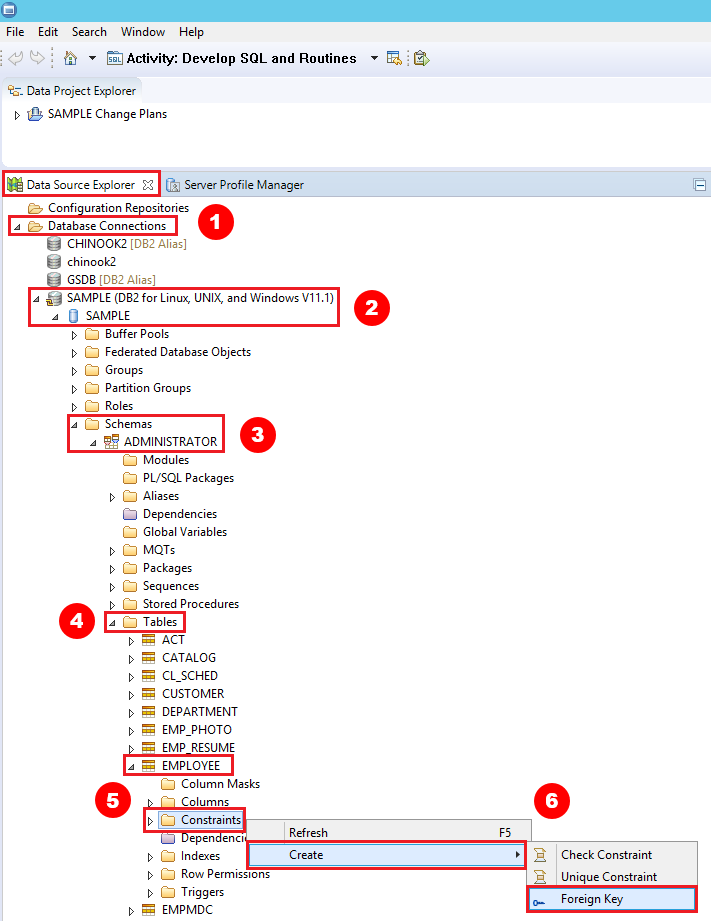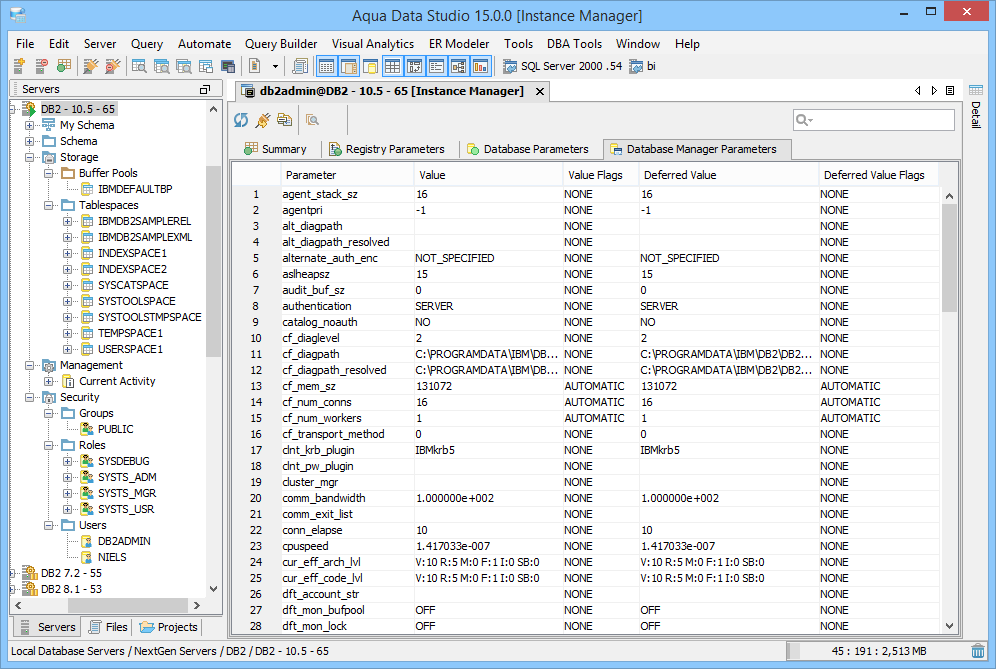

- #Db2 administration tool v11 data sets how to
- #Db2 administration tool v11 data sets pdf
- #Db2 administration tool v11 data sets install
- #Db2 administration tool v11 data sets full
- #Db2 administration tool v11 data sets code
Read the online help or the FAQ for more information. You can export your designs to a reporting repository.

#Db2 administration tool v11 data sets pdf
We recommend using the image or HTML exports, using the Reporting Repository for generating your own reports, or relying on a PDF printer driver. PDF Generation is no longer supported in SQL Developer or SQL Developer Data Modeler. "Note" object is no longer represented by separate file in the file system - those files will be deleted upon saving of design. SQL Developer Data Modeler 20.3 can open designs created with 3.1.x version and save them in their original location however further maintenance of such design in Data Modeler 3.1.x version is not recommended due possible lost of information. If you want to open models built in SQL Developer Data Modeler 2.0 and 3.0, you must use "Save As" before you start making changes in the SQL Developer Data Modeler 20.3. Predefined RDBMS sites are no longer distributed in file defaultRDBMSSites.xml and will be removed from existing versions of that file.
#Db2 administration tool v11 data sets how to
Other JavaScript engines (like "Google V8") also can be used - here is an explanation how to get "Mozila Rhino" engine (js.jar and js-engine.jar). Engine need to be changed in existing scripts. It's replaced with "Oracle Nashorn" scripting engine. "Mozila Rhino" script engine is not distributed with JVM any more. Changed is the way domains are saved and now they are in line with the way other objects are saved - as result there are some changes in formatting of related XML files.
#Db2 administration tool v11 data sets code
Multi-line properties like comments, notes, scripts, PL/SQL code are presented with CDATA section in XML elements. It's recommended to use the same version of Data Modeler on all workstations when versioning functionality is used. Note: Since version 4.2, Data Modeler doesn't maintain SVN properties thus it's not backward compatible with versions before 4.2 in regards to versioning functionality. If you use the 64-bit Data Modeler executable, you will need to use a 64-bit JDK.ĭata Modeler needs to be restarted if "Use Versioning functionality" setting in preferences is changed.

#Db2 administration tool v11 data sets install
When prompted, direct the install to your JDK 1.8 directory. For downloaded files that do not include a JDK.Do not unzip over any existing installations, should you have them. Download and unzip the files into a new and empty directory.After installing SQL Developer Data Modeler, you can use the Import/Export function in the Tools > Preferences > Data Modeler menu to export/import the settings.xml file. If you have worked with the production release of SQL Developer Data Modeler 2.0, then you can save and reuse the default settings you made in the Tools > General Options menu, such as the Default Design Directory and Formatting Options. If you download the files without the JDK, you'll be prompted on startup for the path for the JDK. We provide the download with and without the JDK. 512 MB at a minimum, 1 GB RAM is recommended The following requirements must be met to install and run correctly:

Microsoft Windows (Windows 7 including 圆4, Windows 8) Oracle SQL Developer Data Modeler runs on the following operating systems: Data Modeler extension is added to Oracle SQLcl with support for DDL and reports generation out of Data Modeler designs.The Data Modeler imports from and exports to a variety of sources and targets, provides a variety of formatting options and validates the models through a predefined set of design rules.
#Db2 administration tool v11 data sets full
The tool provides full forward engineering, including engineering from Logical ERD models to Relational models and the reverse, importing from the Data Dictionary and DDL script generation. Oracle SQL Developer Data Modeler is a free data modeling and design tool used to increase developer productivity by providing the means to develop logical, multi-dimensional, user defined data types, relational and physical data models. Platform Support and System Requirements.


 0 kommentar(er)
0 kommentar(er)
